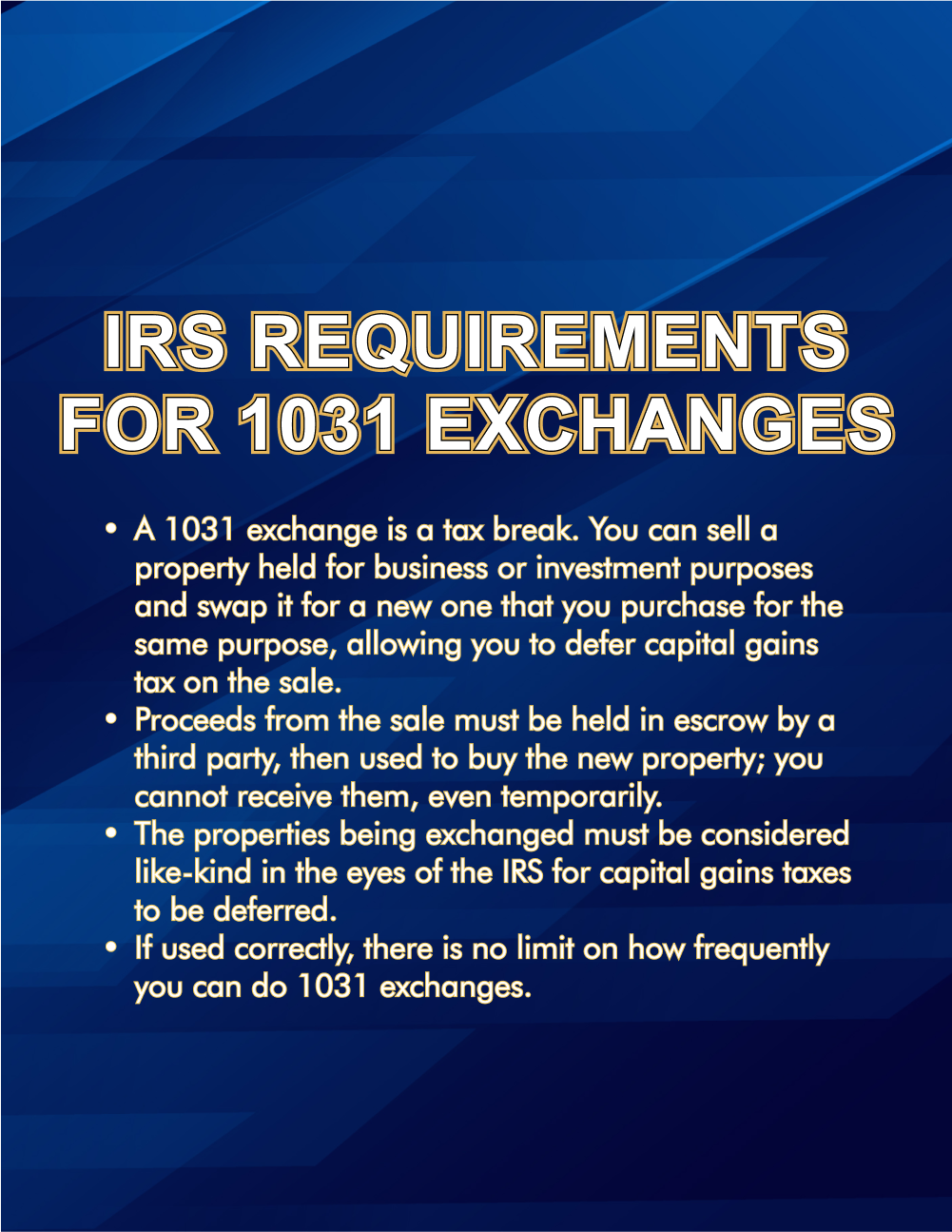1
/
of
1
IRS Requirements for 1031 Exchanges – Your Essential Guide
IRS Requirements for 1031 Exchanges – Your Essential Guide
Regular price
$25.00 USD
Regular price
$75.00 USD
Sale price
$25.00 USD
Unit price
/
per
Shipping calculated at checkout.
Couldn't load pickup availability
What is a 1031 Exchange?
A 1031 exchange is a powerful tax-deferral strategy that allows real estate investors to sell a business or investment property and reinvest the proceeds into a like-kind property—without paying immediate capital gains tax. To comply with 1031 exchange requirements, investors must follow strict IRS regulations.
Key IRS Requirements for 1031 Exchanges
-
Use of a Qualified Intermediary (QI): The IRS mandates that all 1031 exchanges—both delayed and simultaneous—must involve an independent, unrelated Qualified Intermediary (QI) as per IRS Regulations 1031(k)-1(g)(4) and 1031(b)-(2). The QI holds the sale proceeds in escrow and facilitates the exchange.
-
Like-Kind Property: The exchanged properties must be of similar nature, regardless of quality or grade, to qualify for tax deferral.
-
No Direct Access to Funds: The seller cannot receive proceeds from the sale; funds must go through the QI before acquiring the new property.
-
Unlimited Exchanges: There is no limit to the number of times an investor can utilize a 1031 exchange, making it a valuable long-term tax strategy.
How LLC Formation Services Can Help
For investors, forming an LLC can streamline real estate transactions, provide liability protection, and simplify 1031 exchange requirements compliance. LLC formation services ensure proper structuring, allowing investors to maximize tax advantages and safeguard assets.
Ensure your 1031 exchange is IRS-compliant with this essential guide!


